Contact: Jenesse Miller, (213) 810-8554 or jenessem@usc.edu
How has the dynamic changed since the first debate?
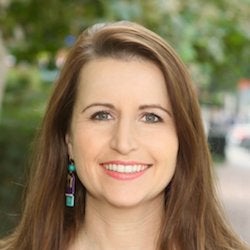 “Everything has changed and all eyes are now on Sen. Kamala Harris and former Vice President Joe Biden because of that defining moment in the first debate,” said Christina Bellantoni, professor of professional practice and director of the Annenberg Media Center at the USC Annenberg School for Communication and Journalism. “Both of them are more likely to get more time on that stage, which is how voters are getting to know them.”
“Everything has changed and all eyes are now on Sen. Kamala Harris and former Vice President Joe Biden because of that defining moment in the first debate,” said Christina Bellantoni, professor of professional practice and director of the Annenberg Media Center at the USC Annenberg School for Communication and Journalism. “Both of them are more likely to get more time on that stage, which is how voters are getting to know them.”
She added:
- Candidates like Beto O’Rourke and Kirsten Gillibrand will need to change their strategy because no one is talking about them.
- Participants will try to land one-liners, grab headlines and boost poll numbers.
- Time is running out for candidates to make their mark so they can raise money and meet criteria to appear in future debates.
Over her 20 years in journalism, Bellantoni has covered local, state and federal government, along with four presidential campaigns and the White House. She will co-host a Democratic presidential debate preview on Facebook Live on July 29 at 11:30 a.m. along with Robert Shrum, director of the Center for the Political Future at the USC Dornsife College of Letters, Arts and Sciences.
Contact: (202) 725-6820 or christina.bellantoni@usc.edu
Can personal stories help candidates connect with voters?
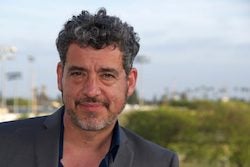 “At this point in the game — and it is a game — the Democratic candidates have two goals: number one, don’t eff up and number two, stand out as a person,” said Oliver Mayer, an associate professor of dramatic writing and associate dean of faculty at the USC School of Dramatic Arts.
“At this point in the game — and it is a game — the Democratic candidates have two goals: number one, don’t eff up and number two, stand out as a person,” said Oliver Mayer, an associate professor of dramatic writing and associate dean of faculty at the USC School of Dramatic Arts.
“Showing who you really are is a gamble and also might be an eff-up if you’re not strong enough to defend yourself. But it’s the only way to get ahead in the slog that is American politics today.”
He added:
- Personal stories only work when they’re authentic and unrehearsed.
- Sen. Kamala Harris’ personal narrative about busing made her look like a “real person” and allowed her to challenge former Vice President Joe Biden.
- Expect more moments of personal drama as candidates use the debate stage to reveal a secret passion or well of pain.
As a playwright of more than 30 plays, Mayer is an expert in stage presence and how to craft and hone powerful monologues and presentations. Mayer discussed these issues at the USC Price School of Public Policy’s 2016 event “Politics as Theater.”
Contact: (213) 821-1545 or omayer@usc.edu
How will voters choose a candidate?
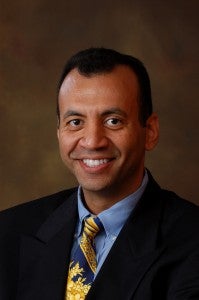 “Choosing a presidential candidate is a big decision, but there are methods that can help,” said Ali Abbas, professor of industrial and systems engineering and public policy at the USC Viterbi School of Engineering and the USC Price School of Public Policy.
“Choosing a presidential candidate is a big decision, but there are methods that can help,” said Ali Abbas, professor of industrial and systems engineering and public policy at the USC Viterbi School of Engineering and the USC Price School of Public Policy.
“Voters should begin by thinking about their values: what do you absolutely want and how likely are candidates to follow through on their promises?”
He added:
- Decision-making is difficult to teach as using tools or a theory for daily decisions doesn’t come naturally.
- If more than one candidate satisfies your values, weigh those against each other. Consider how much of one of your values you can give up to get more of the other.
- Beware that side-by-side comparisons can actually lead to errors in our choices.
Abbas is a leading authority in decision analysis, risk analysis and ethical decision-making. He serves as the director of the USC Neely Center for Ethical Leadership and Decision Making (DECIDE).
Contact: aliabbas@usc.edu
Beyond speaking Spanish, who will appeal to Latino voters?
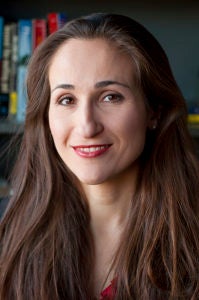 “Candidates will be seeking to grab the attention of California voters as they work to win the state’s large number of delegates on Super Tuesday,” said Mindy Romero, director of the California Civic Engagement Project (CCEP) at the USC Price School of Public Policy.
“Candidates will be seeking to grab the attention of California voters as they work to win the state’s large number of delegates on Super Tuesday,” said Mindy Romero, director of the California Civic Engagement Project (CCEP) at the USC Price School of Public Policy.
“The question is will they address the realities that many California Latino voters currently face, or will we again see some of them just speaking a few lines of Spanish?”
She added:
- Latinos make-up about 30% of California’s eligible voters but are less likely to receive outreach from and mobilization by political campaigns.
- Recent research by CCEP and its partners finds that Latinos continue to experience much lower economic well-being in the state than that of California’s population as a whole.
- Latinos need to know where candidates stand on real issues that impact their families and their communities.
Romero’s research focuses on political behavior and race/ethnicity and seeks to explain patterns of voting and political underrepresentation, particularly among youth and communities of color in California and the United States.
Contact: (530) 665-3010 or msromero@usc.edu
Will Democrats continue their “race to the left” on healthcare?
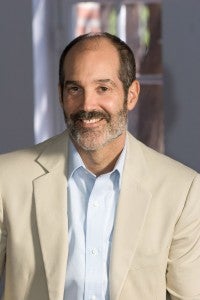 “Proposing a single-payer healthcare system is a recipe for defeat in the 2020 election,” said Geoffrey Joyce, director of health policy at the USC Schaeffer Center and chair of the Department of Pharmaceutical and Health Economics at the USC School of Pharmacy.
“Proposing a single-payer healthcare system is a recipe for defeat in the 2020 election,” said Geoffrey Joyce, director of health policy at the USC Schaeffer Center and chair of the Department of Pharmaceutical and Health Economics at the USC School of Pharmacy.
“Yet, the first set of Democratic debates was a race to the left on healthcare. Many candidates supported ‘Medicare For All’ and providing healthcare to undocumented immigrants, prompting President Trump to tweet ‘That’s the end of that race.’”
He added:
- While the U.S. health care system is far too costly and leaves too many uncovered, proposing a single-payer system at this time is politically infeasible.
- The fervor engendered by Obamacare would pale in comparison to what would ensue if 160 million Americans with private health insurance — most of whom are happy with their care — had to switch plans under a single-payer system.
- Candidates including Joe Biden, Corey Booker and now Kamala Harris support a more modest approach: expanding Medicare while preserving the Affordable Care Act and private insurance.
Joyce studies the costs of medical care and the role of insurance, including the impact of alternative pharmacy benefit designs on prescription drug utilization and spending and the lifetime costs of chronic disease.
Contact: (213) 821-7958 or gjoyce@usc.edu
Will low expectations help front-runner Joe Biden?
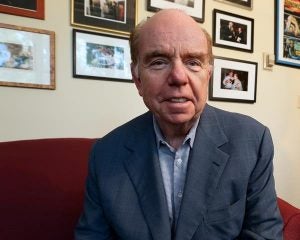 “Former Vice President Joe Biden can’t afford another debate performance like the last one,” said Robert Shrum, director of the Center for the Political Future at the USC Dornsife College of Letters, Arts and Sciences.
“Former Vice President Joe Biden can’t afford another debate performance like the last one,” said Robert Shrum, director of the Center for the Political Future at the USC Dornsife College of Letters, Arts and Sciences.
“Whether or not Sen. Kamala Harris’ pitch on Biden’s record was accurate, it doesn’t matter because he didn’t come back at her. I think he was told to stay above the fray, but there is a difference between attack and counterattack.”
He added:
- According to a recent USC Dornsife/LA Times poll, 86% Democrats believe Joe Biden could “definitely” or “probably” defeat President Donald Trump.
- Low expectations will help him, but Biden needs to be far better prepared for the next series of debates.
Shrum is an expert in presidential elections, political advertising and policy and a longtime Democratic political strategist. His analysis of the first Democratic debates was recently featured in the Washington Post. Shrum will co-host a Democratic presidential debate preview on Facebook Live on July 29 at 11:30 a.m.
Contact: (202) 338-1812 or shrum@usc.edu
Photo courtesy of Pixabay



